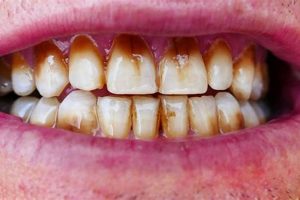The beverage, a combination of roasted coffee beans and cannabis, presents a novel method of consuming both substances. This fusion can involve infusing coffee beans with cannabis extracts prior to roasting, or adding cannabis oil or ground cannabis directly to brewed coffee.
Interest in this product stems from the potential synergistic effects of caffeine and cannabinoids. Some proponents suggest it offers a balanced experience, mitigating the anxiety sometimes associated with caffeine while providing the therapeutic benefits attributed to cannabis. Historically, the combination reflects a modern adaptation of traditional herbal remedies utilizing naturally occurring compounds for enhanced wellness.
The following sections will explore the preparation methods, potential health implications, legal considerations, and consumer trends surrounding this emerging product.
Preparation and Consumption Guidance
The following guidelines address the preparation and consumption of cannabis-infused coffee, emphasizing responsible and informed usage.
Tip 1: Start with a Low Dosage: Individuals unfamiliar with combining cannabis and caffeine should begin with a minimal dose of cannabis, typically 2.5-5mg of THC, to assess individual sensitivity and prevent adverse reactions.
Tip 2: Monitor Caffeine Intake: Be mindful of the caffeine content in the coffee blend used. Excessive caffeine consumption, combined with cannabis, can exacerbate anxiety or induce palpitations. Opt for lower caffeine blends if necessary.
Tip 3: Use High-Quality Ingredients: Employ ethically sourced coffee beans and lab-tested cannabis products to ensure purity and potency. This minimizes the risk of contaminants and provides a more predictable experience.
Tip 4: Choose the Right Consumption Method: Explore various methods, such as infusing coffee beans with cannabis oil or adding cannabis-infused creamers, to find a delivery method that best suits individual preferences and tolerance levels.
Tip 5: Be Aware of Delayed Effects: When ingesting cannabis, the effects are typically delayed compared to inhalation. Allow ample time (up to two hours) for the effects to manifest before consuming additional quantities.
Tip 6: Consider Potential Interactions: Be aware of potential interactions between cannabis, caffeine, and any prescription medications being taken. Consult with a healthcare professional to address specific concerns.
Tip 7: Consume Responsibly: Refrain from operating heavy machinery or driving under the influence of cannabis. Adhere to all applicable local and state laws regarding cannabis consumption.
Following these guidelines promotes a safer and more enjoyable experience with cannabis-infused coffee, mitigating potential risks and optimizing desired effects.
The subsequent sections will delve into the legal and regulatory landscape surrounding this product, alongside its potential long-term effects.
1. Synergistic Effects
The purported appeal of the beverage arises primarily from the potential synergistic interaction between caffeine and cannabinoids, specifically THC and CBD. Caffeine, a stimulant, increases alertness and can, in some individuals, induce anxiety. Cannabinoids, conversely, are known for their potential anxiolytic properties. The theoretical benefit lies in the cannabinoids moderating the jitteriness or anxiety sometimes triggered by caffeine, while caffeine enhances the cognitive effects of certain cannabinoids. For example, a low dose of THC combined with caffeine may increase focus and creativity without inducing significant psychoactive effects. The presence and intensity of synergistic effects depend heavily on individual physiology, cannabinoid ratios, and caffeine concentration.
Research into the specific interactions between caffeine and cannabinoids is ongoing. Preliminary studies suggest that caffeine may influence the metabolism of THC, potentially affecting its bioavailability and duration of action. Furthermore, the endocannabinoid system, which plays a critical role in regulating mood, pain, and stress response, is also influenced by caffeine consumption. Therefore, understanding the precise mechanisms through which these substances interact is essential for predicting and controlling their combined effects. For example, individuals who metabolize caffeine slowly may experience a prolonged and amplified effect from the beverage compared to those who metabolize caffeine quickly.
In summary, the concept of synergistic effects is central to the perceived benefits of the beverage. While empirical evidence is still developing, the potential for caffeine and cannabinoids to modulate each other’s effects represents a key driver of consumer interest. However, variability in individual responses necessitates cautious experimentation and a thorough understanding of dosage and cannabinoid profiles. Further research is required to fully elucidate the nature and extent of these interactions and to establish safe and effective consumption guidelines.
2. Dosage Control
Accurate and consistent dosage control is paramount when consuming cannabis-infused coffee, due to the variable potency of cannabis and the potential for unpredictable interactions with caffeine. Unlike standard coffee products, where caffeine content is relatively uniform, the concentration of cannabinoids can vary significantly between different preparations of cannabis-infused coffee.
- THC Concentration Variability
The primary psychoactive compound in cannabis, THC, can range from negligible amounts in hemp-derived products to substantial levels in preparations using high-THC cannabis strains. Without precise knowledge of the THC content per serving, consumers risk unintended psychoactive effects, potentially leading to anxiety, paranoia, or impaired cognitive function. For instance, a consumer accustomed to a low-dose edible might inadvertently ingest a significantly higher dose through a seemingly equivalent volume of infused coffee, resulting in an adverse experience.
- Delayed Onset and Duration
Ingested cannabis, unlike inhaled forms, undergoes first-pass metabolism in the liver, converting THC into 11-hydroxy-THC, a more potent psychoactive metabolite. This process delays the onset of effects, typically ranging from 30 minutes to two hours, and prolongs their duration. Consequently, individuals may mistakenly consume additional quantities of cannabis-infused coffee before the initial dose takes effect, leading to overconsumption and intensified psychoactive effects. This is particularly problematic for those new to cannabis edibles or individuals with slower metabolisms.
- Caffeine-Cannabinoid Interaction
The interplay between caffeine and cannabinoids can further complicate dosage control. Caffeine, a stimulant, may mask or amplify the effects of THC, making it difficult to gauge the true potency of the ingested cannabis. In some instances, caffeine may exacerbate anxiety associated with high THC doses, while in others, it may mitigate sedative effects. Without careful titration and monitoring, the combined effects can be unpredictable and potentially undesirable. Individuals with pre-existing anxiety or cardiovascular conditions should exercise particular caution.
- Importance of Product Labeling and Testing
Reliable dosage control relies heavily on accurate product labeling and third-party testing. Consumers should prioritize products that clearly state the THC and CBD content per serving and that have undergone independent laboratory analysis to verify potency and purity. This information empowers consumers to make informed decisions about their consumption and minimizes the risk of accidental overconsumption or exposure to contaminants. Lack of transparent labeling and testing protocols poses a significant challenge to responsible consumption.
In conclusion, the nuanced interaction between caffeine and the concentration of cannabis, necessitates an emphasis on stringent dosage control measures. Responsible consumption requires a comprehensive understanding of product potency, individual tolerance, and the potential for delayed and prolonged effects. This underscores the importance of transparent labeling, independent testing, and cautious experimentation, particularly for individuals new to cannabis-infused products or those with pre-existing health conditions.
3. Legality Variations
The legal status of cannabis-infused coffee is complex and varies significantly across jurisdictions, influencing its availability, distribution, and regulation. This patchwork of laws presents challenges for both consumers and businesses operating in the cannabis and coffee industries.
- Federal vs. State Laws (United States)
In the United States, cannabis remains a Schedule I controlled substance under federal law, making its possession, distribution, and sale illegal at the national level. However, many states have enacted laws legalizing cannabis for medical or recreational use, creating a conflict between federal and state regulations. Consequently, the legality of cannabis-infused coffee depends on the specific state’s laws. In states where cannabis is legal, the product may be permitted, subject to state-specific regulations regarding labeling, testing, and distribution. In states where cannabis is illegal, the product remains prohibited.
- International Laws
The legality of cannabis-infused coffee varies widely across international borders. Some countries have legalized cannabis for medical or recreational purposes, while others maintain strict prohibitions. In countries where cannabis is legal, the product may be available, subject to local regulations. However, importing or exporting cannabis-infused coffee across international borders may be illegal, even if the product is legal in both the origin and destination countries. International travelers should be aware of the cannabis laws of any country they plan to visit.
- Hemp-Derived CBD Products
The 2018 Farm Bill legalized hemp at the federal level in the United States, defining hemp as cannabis with a THC concentration of 0.3% or less. This has led to the proliferation of hemp-derived CBD products, including CBD-infused coffee. While federally legal, the legality of CBD-infused coffee may still be subject to state laws. Some states have imposed restrictions on the sale of CBD products, particularly in food and beverage applications. Consumers should be aware of the CBD laws in their state before purchasing or consuming CBD-infused coffee.
- Regulatory Compliance
Businesses operating in the cannabis-infused coffee market must navigate a complex web of regulations, including licensing requirements, product testing, labeling standards, and advertising restrictions. Compliance with these regulations is essential to avoid legal penalties and maintain consumer safety. For example, in states where cannabis is legal, businesses may need to obtain a cannabis business license to manufacture or sell cannabis-infused coffee. They must also comply with state-specific regulations regarding product testing to ensure that the product is safe and accurately labeled. Failure to comply with these regulations can result in fines, license revocation, or even criminal charges.
The legal landscape surrounding the beverage is constantly evolving, making it crucial for consumers and businesses to stay informed about the latest developments. The patchwork of laws creates challenges for interstate commerce and international trade, and it underscores the need for clear and consistent regulations to ensure consumer safety and promote responsible business practices. As cannabis laws continue to evolve, the legal status of the beverage will likely remain a dynamic and complex issue.
4. Preparation Methods
The preparation method significantly influences the potency, flavor profile, and overall experience of cannabis coffee. The chosen technique dictates how effectively cannabinoids are extracted and integrated with the coffee, ultimately impacting the consumer’s perception and satisfaction.
- Infusion of Coffee Beans
This method involves infusing whole or ground coffee beans with cannabis oil or extracts before roasting or brewing. The infusion process can be complex, requiring precise temperature control to prevent degradation of cannabinoids and maintain the integrity of the coffee beans. The result is a coffee with a subtle cannabis flavor and a more evenly distributed cannabinoid content. Improper execution can lead to inconsistent potency and an undesirable aftertaste.
- Addition of Cannabis Oil/Extract to Brewed Coffee
This technique entails adding cannabis oil, tincture, or extract directly to a cup of brewed coffee. This offers greater control over dosage, as the consumer can adjust the amount of cannabis added to each serving. However, the oil or extract may not fully integrate with the coffee, resulting in an uneven distribution of cannabinoids and a potentially oily texture. The flavor profile may also be less harmonious compared to bean infusion.
- Use of Cannabis-Infused Creamers/Sweeteners
Another approach involves utilizing pre-made creamers or sweeteners that have been infused with cannabis. This method offers convenience and consistent dosing, assuming the creamers or sweeteners are accurately labeled. However, it limits control over the specific type of cannabis extract used and may introduce additional ingredients that alter the flavor and nutritional profile of the coffee.
- Direct Addition of Ground Cannabis
This involves directly adding finely ground cannabis flower to the coffee grounds before brewing. While seemingly straightforward, this method presents challenges in terms of filtration and flavor. The coffee may have a gritty texture and a strong, potentially overwhelming cannabis taste. Dosage control is also difficult, as the potency of the cannabis flower can vary widely. This method is generally considered less refined than other techniques.
The selection of a preparation method for cannabis coffee should consider factors such as desired potency, flavor preferences, and ease of execution. Bean infusion offers the most integrated flavor and potentially consistent dosing, while adding extracts provides greater control over potency. Consumers should be aware of the potential variations in quality and consistency between different preparation methods and choose products from reputable sources that prioritize accurate labeling and testing.
5. Therapeutic Applications
The intersection of “cannabis coffee” and therapeutic applications stems from the individual properties of cannabis and coffee, and their potential synergistic effects. Cannabis, particularly its components THC and CBD, is investigated for its analgesic, anxiolytic, and anti-inflammatory properties. Coffee, primarily due to caffeine, is known for its stimulant effects, potentially enhancing focus and alleviating fatigue. The combination is theorized to offer a unique therapeutic profile, appealing to individuals seeking relief from specific ailments while maintaining alertness. For example, individuals experiencing chronic pain may find that the analgesic properties of cannabis, when combined with the stimulating effects of coffee, provide both pain relief and enhanced cognitive function, enabling them to perform daily tasks more effectively.
Consideration of therapeutic applications requires acknowledging the complexities of individual responses and the current limitations of scientific research. The effectiveness of cannabis coffee as a therapeutic agent varies depending on factors such as the cannabinoid profile, dosage, individual metabolism, and the specific condition being treated. Furthermore, potential interactions between caffeine and cannabinoids must be carefully evaluated to mitigate adverse effects. For instance, individuals prone to anxiety may experience an exacerbation of symptoms due to the combined effects of caffeine and THC. Therefore, any therapeutic application necessitates personalized guidance from a healthcare professional and careful monitoring of individual responses. As an illustrative example, studies exploring the impact of caffeine on THC metabolism reveal that caffeine may either amplify or attenuate the effects of THC, contingent on individual variations in enzymatic activity.
In summary, while the concept of cannabis coffee as a therapeutic agent holds promise, its practical application demands careful consideration of individual variability, potential interactions, and the current state of scientific evidence. The synergistic benefits and personalized therapeutic profiles remain a subject of ongoing investigation, underscoring the importance of cautious exploration under professional guidance. The connection to broader themes in alternative medicine and holistic wellness is evident, as individuals increasingly seek naturally derived compounds for managing various health conditions, yet the need for rigorous clinical trials to validate therapeutic claims remains paramount.
Frequently Asked Questions
The following section addresses common inquiries and misconceptions regarding cannabis coffee, providing evidence-based information to promote informed decision-making.
Question 1: What are the primary effects associated with consuming cannabis coffee?
The effects vary depending on the individual’s tolerance, the cannabis strain used, and the caffeine content. Common effects include altered mood, increased alertness (followed by potential drowsiness), and potential anxiety or paranoia if THC levels are high. The combination can also lead to increased heart rate and altered perception of time.
Question 2: Is cannabis coffee legal?
The legality of cannabis coffee is dependent on local regulations concerning cannabis. Where cannabis is legal for recreational or medicinal use, cannabis coffee may also be legal, subject to specific regulations. However, in jurisdictions where cannabis remains prohibited, the sale and consumption of cannabis coffee is illegal.
Question 3: How does cannabis coffee differ from traditional cannabis edibles?
Unlike most edibles, cannabis coffee also contains caffeine, which acts as a stimulant. This addition can modulate the effects of cannabis, potentially increasing alertness or exacerbating anxiety. Furthermore, the rate of absorption may differ due to the liquid form, potentially leading to a faster onset of effects compared to solid edibles.
Question 4: Are there any potential health risks associated with consuming cannabis coffee?
Potential health risks include increased heart rate, anxiety, paranoia, impaired motor skills, and altered judgment. Chronic use may lead to dependence or exacerbate pre-existing mental health conditions. Individuals with heart conditions, anxiety disorders, or a history of substance abuse should exercise extreme caution.
Question 5: How should the dosage of cannabis coffee be determined?
Dosage should be determined cautiously, starting with a low dose of cannabis, typically 2.5-5mg of THC, and gradually increasing until the desired effect is achieved. Individuals unfamiliar with cannabis should exercise extra caution. The caffeine content should also be considered, as excessive caffeine intake can exacerbate anxiety.
Question 6: Can cannabis coffee be used for medicinal purposes?
While cannabis is investigated for certain medicinal properties, cannabis coffee is not a standardized or regulated medicinal product. Its effectiveness for specific conditions is not well-established, and its use should not replace conventional medical treatments. Consult with a healthcare professional before using cannabis coffee for any medicinal purpose.
Understanding the nuanced interaction is crucial for safe and informed consumption.
The following sections will elaborate on the future prospects and innovation areas.
Conclusion
This exploration of “cannabis coffee” has illuminated its multifaceted nature, encompassing preparation methods, potential therapeutic applications, legal complexities, and the critical importance of dosage control. The analysis reveals that the interaction between caffeine and cannabinoids warrants careful consideration, influencing both the desired effects and potential risks associated with its consumption.
As research continues and regulations evolve, a discerning approach remains paramount. Further investigation is needed to fully elucidate the long-term effects and optimal uses of this novel combination. Individuals should prioritize responsible consumption, seeking guidance from healthcare professionals and staying informed about the legal landscape in their respective jurisdictions. The future of “cannabis coffee” hinges on rigorous scientific inquiry and the establishment of clear, evidence-based guidelines to ensure consumer safety and promote informed decision-making.







